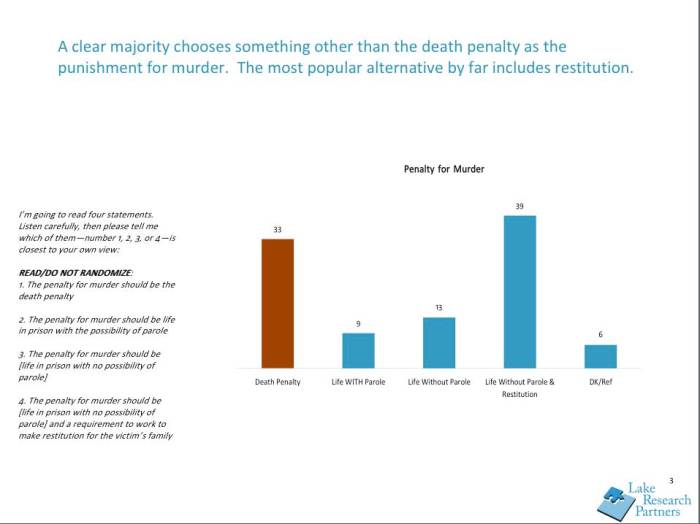Archive for May 2012
The Death Penalty and the Perils of Progressive Fatalism
Today, Up With Chris Hayes featured a good discussion of wrongful convictions and the death penalty. But Chris repeated a misleading claim about public opinion on the death penalty that highlights a larger problem. The claim was that Americans overwhelmingly support the death penalty, and therefore efforts to repeal the death penalty face a serious challenge in terms of changing people’s minds. Chris pointed to a poll showing that a solid majority of Americans said the death penalty was morally justified. More typically, people point to polls that ask simply if people support or oppose the death penalty.
Intuitively, this makes sense. The problem is that it’s a false choice. When polls offer people alternatives to the death penalty, those numbers shift considerably. Gallup has shown this for some time. When offered the choice of the death penalty versus life without parole, public opinion is evenly split. The abolitionist Death Penalty Information Center offers an even more nuanced look.
Note, this poll doesn’t offer people new information, it simply gives them additional choices. What happens when people do hear new information? The numbers shift even more.
What does this mean? It means that many of those people who are allegedly supportive of the death penalty would chose another penalty if given the choice. It means that ‘support’ is soft. Hardly the stuff of fatalism.
I know why someone who supports the death penalty might prefer the first set of questions over the second. But why would an opponent? And Chris is not unusual here. Why do death penalty opponents so often fail to offer the full picture? I don’t know the answer. I suspect a lot of progressives, after years of conservative dominance (which is not the same as majority support for conservative opinions) have adopted an identity of being on defense, of being outnumbered, and just see the world through that lens. But doing so is both distorting and poses a barrier for those who seek progressive change.
* I’m leaving aside three important issues. First, public opinion does not generally drive policy. Second, results of polling is not the same as strongly and sincerely held opinions. Three, we know that polling responses are partly a product of elite discourse. Right now, both parties are pro-death penalty, and as a result, so is the media. If one party were to offer a different view, it would change media coverage and likely move polls as well.



The Trouble with Scientism
leave a comment »
Share this:
Written by David Kaib
May 30, 2012 at 12:22 am
Posted in Submitted without comment
Tagged with Philip Kitcher, science